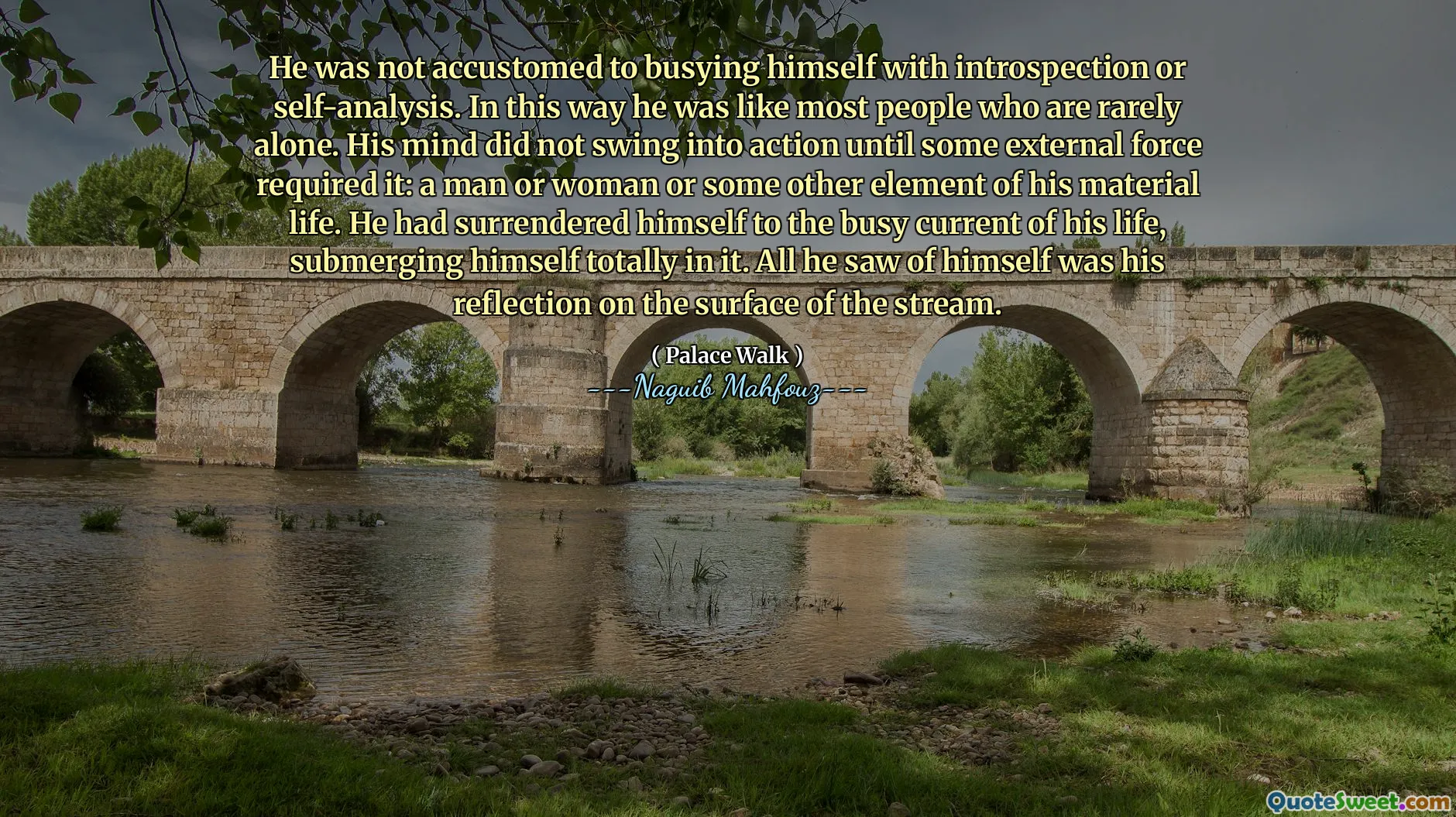
他不习惯于忙于内省或自我分析。这样,他就像大多数很少独自一人的人一样。直到某些外力需要它:男人或女人或他物质生活中的其他元素才能采取行动。他已经屈服于一生中繁忙的当前,将自己完全淹没在其中。他所看到的只是他对溪流表面的反思。
(He was not accustomed to busying himself with introspection or self-analysis. In this way he was like most people who are rarely alone. His mind did not swing into action until some external force required it: a man or woman or some other element of his material life. He had surrendered himself to the busy current of his life, submerging himself totally in it. All he saw of himself was his reflection on the surface of the stream.)
Naguib Mahfouz在“ Palace Walk”中描述的角色表明,不愿从事自我反思或深入思考自己的生活。像许多经常被别人包围的人一样,他不会在外部环境或人们促使他这样做之前考虑自己的内心自我。这种趋势强调了那些过着忙碌生活的人的共同行为,因为他们经常优先考虑即时互动和义务。
他完全赋予了他周围生活的流动,沉浸在日常活动中,以至于他几乎没有认识到自己的身份。他认为自己唯一的一瞥是肤浅的,就像看到他在水面上的反射一样。这个比喻强调了他与自己的真实自我的脱节,这表明他没有自己的思想和感受,对环境的要求失去了。











